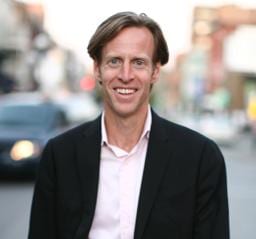What does it mean to be a Liberal?
It’s a fairly existential question that party members across the country are asking in the wake of a devastating federal election loss earlier this year.
The Ottawa Centre riding association met on Nov 9 at the Hintonburg Community Centre for the first of a series of roundtable discussions about just this question.
The group is throwing open its doors not only to Liberal members, but also to the “Liberal-curious” who may want to have a say as the party begins a period of rebuilding.
“It was a real opportunity for us to get together with members and talk politics, talk policy, talk about where we want to go,” says riding president Pat O’Brien. “In this riding, we haven’t done that for a long time, and I think the party as a whole hasn’t done that for a long time because we’ve been going from election to election to election.”
Approximately 50 people, from senior citizens to teenagers not yet able to vote, turned up and discussed everything from post-secondary education to the future of the job market.
Young voters were well represented – O’Brien says around 70 percent of the riding executive is less than 30.
Over nearly two hours, lively discussions emerged with some remarkable similarities: the perception that the party is arrogant, that there are communication problems between the upper echelon and grassroots members, and that it needs to better be able to fight negative attack ads.
Some members wondered if the party should stop trying to be all things to all people; others asked if the party is still truly a national party or if there are areas of the country that are “dead zones.”
“Sometimes Liberals fall into the trap of thinking that everybody’s a Liberal,” said Mike Crawley, who is running for party president. “Canada’s a liberal country and there’s this sense that we’re the natural governing party. And if you look back, we’ve had a tough time the past 20 years, and we have to be frank about that.”
Crawley says part of this frank discussion is acknowledging that since 1980, the party has defeated a united Conservative party only once, which resulted in Paul Martin’s minority government in 2004.
He likens the current situation to the party’s defeat in 1958, when Diefenbaker’s Conservatives won.
“We really blew the doors open to the party and said come one, come all with new ideas,” Crawley says. “It opened up a huge period of innovation – in the party and in Canada. That should be our objective – big ideas.”
Crawley sees embracing new technologies to take policy discussions from isolated riding associations to online forums for Liberals nationally as part of that culture of innovation.
“We should be able to facilitate Liberals, with people that want to work on the same idea across the country coming together,” he says.
Other members say it’s such frank discussions on policy ideas – and the party itself – they are looking for.
“It’s important we have events like this because it really rings true to the grassroots promise,” says Kiel Dixon, a member of the riding executive.
Dixon says members need to take an objective look at where the party went wrong and work to fix it as soon as possible.
“You’re not going to win an election,” he says, “or improve your current standing in the next election if you start campaigning in the last six weeks before it.”


 Why you can trust Xtra
Why you can trust Xtra


